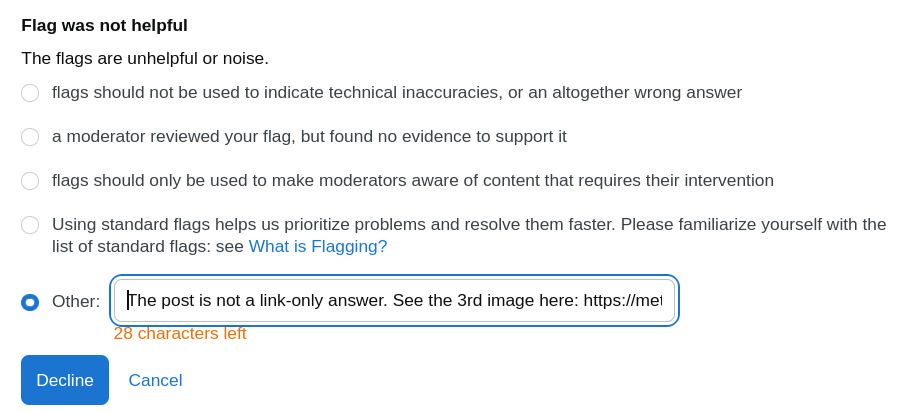If you are tired of typing the same comments into Stack Exchange sites over and over, you can use this add-on to insert any of your frequently written comments with a couple clicks.
Installation
- Install a user script extension (such as Tampermonkey) for your browser. Greasy Fork maintains a list of user script extensions that are available for various browsers.
- Click here to install
context-menu.user.jswithin your user script manager.
Getting started
Trigger a context menu on the field where you write a comment by right-clicking, long-pressing, or command-clicking (depending on your operating system.) A menu will pop up with a list of comments that can be inserted. Click one of them to insert it, or use the "Edit" button to change the comment templates.
Features
- Right-click on an empty comment field, or on the "Add a comment" link to bring up a context menu of comments that can be inserted.
- Also works for edit notes, flags, and flag handling responses.
- Does not show a context menu for comment boxes that have been filled in, allowing you to use the standard context menu for features like spell check.
- An import/export text file format
- Load comments from a URL (Hosting comment templates on GitHub works great.)
- Comment templates are stored in user script storage that persists across all Stack Exchange sites (no need to configure your comments per site.)
- Set comment templates to be available only in specific contexts:
- Only on specific types of comments (e.g. comments on answers)
- Only for moderators or for non-moderators
- Only on specific sites (e.g. stackoverflow.com)
- Only for specific tags (e.g. Java)
- Filter comments by keyword
- Warnings about comment templates that are too long
Variables
The following variables are expanded by this code within comments:
$SITENAME: The name of the current Stack Exchange site, e.g., "Stack Overflow"$SITEURL: The domain name of the current Stack Exchange site, egstackoverflow.com. You usually don't need this variable, you can use links like[editing help](/editing-help)to link to URLs found on every Stack Exchange site.$MYUSERID: Your user id$MYNAME: Your username (without spaces for @references)$QUESTIONID: The ID of the question at the top of the page$OPID: The user ID of the person who asked the question$OPNAME: The username of the person who asked the question (without spaces for @references)$OPREP: The reputation of the person who asked the question$POSTID: The ID of the question or answer for which a comment is being written$AUTHORID: The user ID of the author of the question or answer for which a comment is being written$AUTHORNAME: The username of the author of the question or answer for which a comment is being written (without spaces for @references)$AUTHORREP: The reputation of the author of the question or answer for which a comment is being written
In addition, Stack Exchange expands links such as [meta], [edit], and [help]. See the documentation for the full list and explanations.
SE-AutoReviewComments compatibility
I authored this project because AutoReviewComments isn't currently maintained and is no longer fully functional. I wanted migration from it to be as painless as possible.
- The import/export format is very similar. Comment templates exported from SE-AutoReviewComments can be directly imported
- All SE-AutoReviewComments variables are supported
There are several features of SE-AutoReviewComments that are not implemented here:
- Displaying extended information about the author
- "See-through" mode
- JSONP export
- Showing the full comment text by default
- Adding a welcome message to comments for new users
- Direct extensions for Firefox or Chrome
GitHub
If you want to suggest changes or report bugs, please do so in the GitHub repository for this project.


